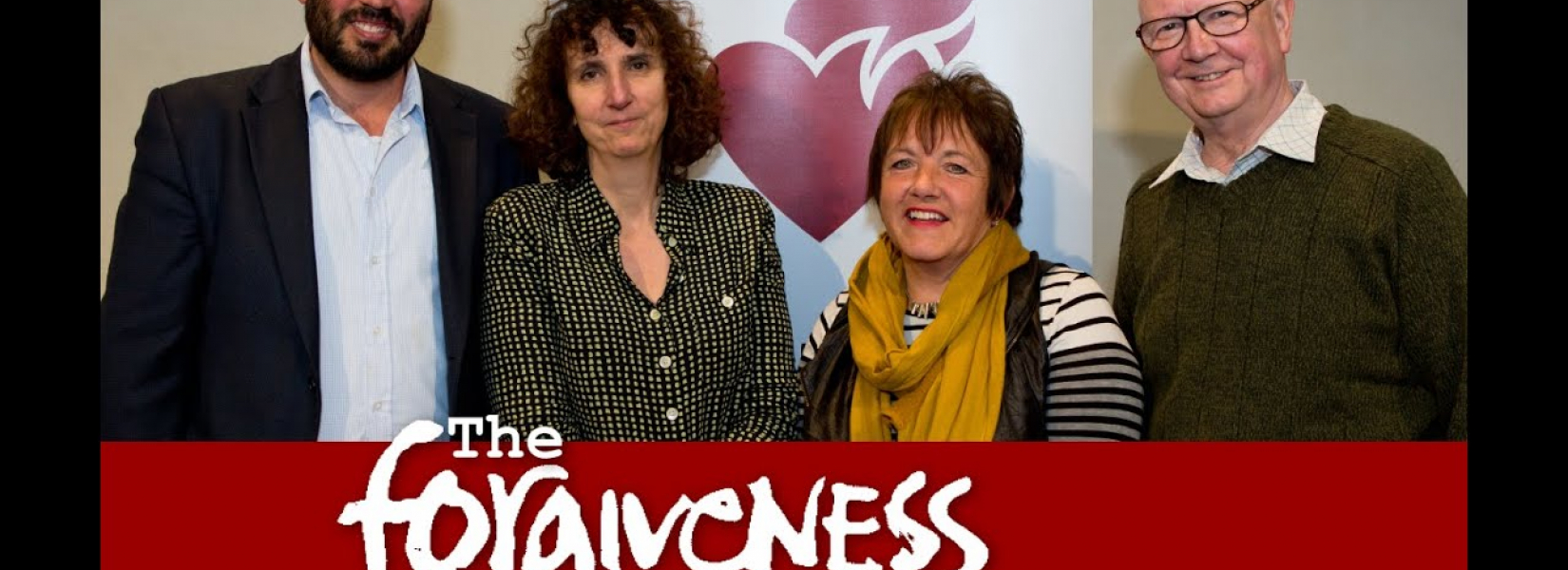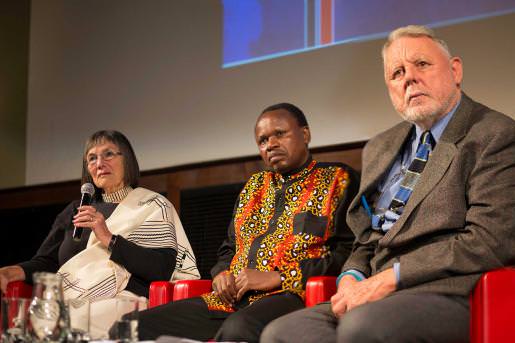The role of forgiveness in creating peace
07/10/2015THE ROLE OF FORGIVENESS IN CREATING PEACE
On 23 September, in celebration of the UN’s International Day of Peace, Initiatives of Change UK hosted an evening screening the Beyond Forgiving documentary and a panel discussion with two local peace-builders.
Partner to the event, Junior Chamber International (JCI) London is a voluntary, world-wide personal development organisation for young professionals and entrepreneurs. For the first time they organized ‘Peace Week’, a week of events that ‘contribute to world peace, distinguishing between the ideological and the pragmatic, the global and the local level’, of which this collaboration with IofC was one event during the week.
21 new people to IofC watched the impactful documentary that tells the story of two South-Africans trying to move beyond their pain towards forgiveness. The screening, of the post-Apartheid film was followed by a panel discussion with two young women, passionate about peace-building after experiencing conflict in different corners of the world. Amina Khalid a British Somali and Angharad Thain from Northern Ireland, told the engaged audiences about their work and life story.
Angharad is a Project Coordinator at St Ethelburga’s Centre for Peace & Reconciliation. She supports the delivery of their Conflict Coaching courses, one being the Community Reconciliation training. Angharad is passionate about the role of the Christian faith in transforming conflict and in furthering the narrative of peace that is so important for our times. She previously worked as a Peaceworker for Quaker Peace and Social Witness.
'We are all wounded healers' Angharad stated in her opening remarks, agreeing with Ginn Fourie protagonist of the documentary. Angharad discussed, from her experience, the importance of honesty in conflict resolution, which both IofC and St Ethelburga’s address and encourage through their work.
Growing up in Northern Ireland, Angharad’s journey took her to work in conflict resolution at a community level; listening and building relationships. This early experience drew her to the work of St Ethelburga’s. 'Aspects of faith drive me – everything is already reconciled through Jesus Christ’s work. We can all be redeemed; we are already forgiven so we can therefore forgive.'
Amina Khalid, a young British Somali woman set-up Peace Begins at Home, a local not-for-profit organisation that grew out of IofC’s Agenda for Reconciliation programme. It focuses on inter-generational and conflict resolution dialogue, particularly between African diaspora communities.
'In Somalia, peace and reconciliation used to be at the heart of everything – now this is not the case.' Amina talked about losing family members in the conflict in her home country, fleeing to the UK as a refugee and starting a new life in London. She faced bullying and as a result moved schools four times. 'It was a traumatic time for me. At some point, I realised that I have two choices – burry my head in the sand or stand up and do what is right.'
Fuelled by her need to comprehend war and conflict, she took courses and began learning about the process of peace. 'I realised I could tell my story and that it might help others. There is a power in story-telling and I wanted to use it to help my local (Somali) community.'
Amina talked passionately about her work and the fact that it was the London riots that motivated her to take action. Her non-for-profit organisation have run trainings in six boroughs across London, training over 300 people in conflict management and family reconciliation methods.
The audience then had the opportunity to ask the two women questions. One gentleman asked how they deal with people who haven’t had a ‘transformation’ or do not have a sense of forgiveness within their conflict resolution work. 'I hope that through sharing my story and pain it will inspire others', Amina answered.
'What is your vision for the world?' was another question asked. 'Everyone letting go and opening their heart to change so we can all move towards peace', answered Amina. Angharad highlighted ‘interconnectedness’ and the need to 'see our neighbour as the same as us, despite where we are geographically from.' She also touched on the interconnectedness we have with the planet that gives us life.’
The conversation flowed to the importance of relationships and the need for people to work for peace at all levels – from the ground to the policy level. 'Our challenge is to each find our role within this sphere', stated Angharad. Amina followed 'global change takes time. I think it is because we are afraid to look inwards and make steps towards individual change that we need to make for the benefit of our family, community and world.'
The evening concluded that peace building is long-term and challenging work. Although ‘peace treaties’ have been signed in South Africa, Northern Ireland and Somalia – each country is still walking their journey towards realised peace.
We gain inspiration and hope from peacemakers such as protagonists Ginn and Letlapa and these two women that took to the stage this evening.
Amina ended with a Rumi quote for the audience to reflect on during their journey home - 'The wound is the place where the light enters you.'
By Talia Smith

